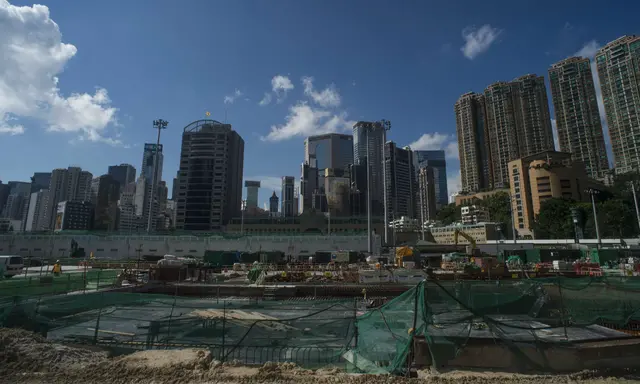Some foreign media recently alledged that Hong Kong Special Administrative Region (SAR) chief executive was suspected of pressurizing the region's anti-graft body and the guilty verdict against student leaders showed Hong Kong's falling into dictatorship politics.
Those groundless and biased allegations are not at all convincing and people should be vigilant for such kind of confusing and provocative tricks.
Since Hong Kong's return to the motherland, the anti-graft body Independent Commission Against Corruption (ICAC) has been working well under strict internal personnel management mechanism.
In terms of recent removal of former acting head of operations Rebecca Li, the ICAC Commissioner Simon Peh has made it clear that the decision of removing her from the post was only based on the judgement that her job performance was not up to the mark.
If someone insists on connecting Li's removal with Hong Kong's chief executive only because she once participated in an investigation related to the chief executive, it will be a far-fetched interpretation.
In fact, the chief executive made a clear explanation of the investigation in 2014. More importantly, the chief executive is not allowed to participate in decision-making or giving advice on the appointment of the ICAC's senior staff according to the law of Hong Kong.
Several key organizers of the illegal "Occupy Central" movement were sentenced guilty by Hong Kong High Court on July 21. Some foreign media thus questioned that Hong Kong police force is being "politicized."
In their theory, only the police stand aside doing nothing when illegal behavior aimed at destroying Hong Kong's law and order occur, could they maintain "political neutralization."
Act according to the law and maintain political neutralization is the fundamental professional ethics of Hong Kong police force. However, indifference to illegal activities, the so-called analysis based on chronic bias and ill intentions revealed those media's double-standard mindset on the rule of law.
Actually, the people who are most qualified to judge Hong Kong' s current situation are Hong Kong residents. In their opinion, the current Hong Kong SAR government has earnestly implemented the "one country, two systems" principle and the Hong Kong Basic Law, and made steady progress in maintaining law and order, developing economy and improving people's livelihood.
It has been proved time and again since Hong Kong's return to the motherland in 1997 that the implementation of "one country, two systems" in Hong Kong has never been distorted. Both the central government and the SAR government have fully safeguarded the solemn commitment.
Hong Kong people should avoid being misled by the reports of some foreign media with ulterior motives as the reports could aggravate social conflicts and hinder Hong Kong's development.
Although the Hong Kong SAR has experienced ups and downs since the 1997 handover, the region has never stopped its steps forward. People should have enough confidence that Hong Kong SAR could definitely clear up misunderstandings, embark on new course of development and cope with new challenges with wisdoms and an open mind.
(APD)
 简体中文
简体中文

